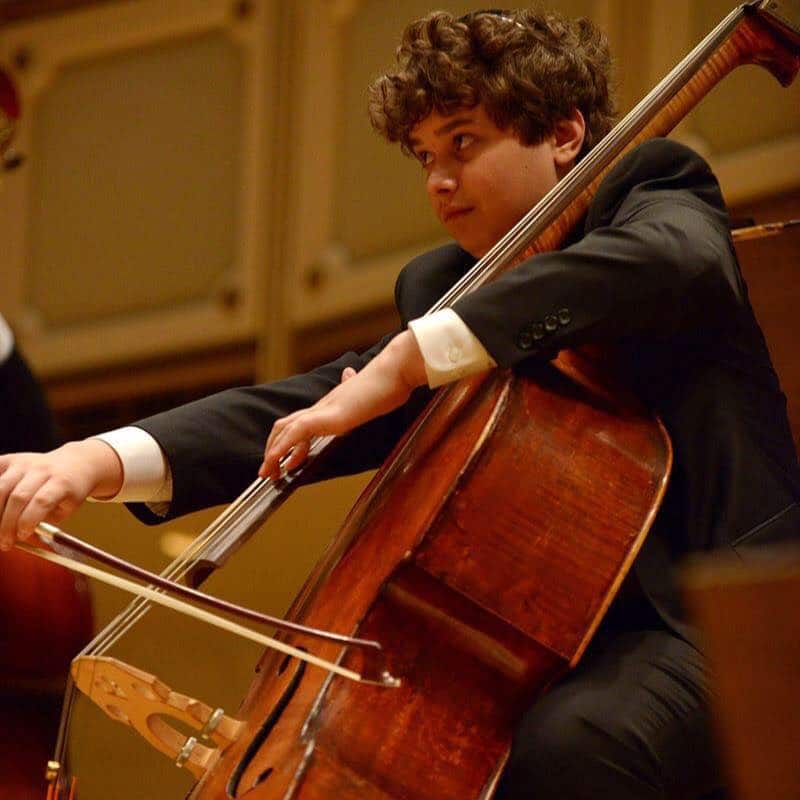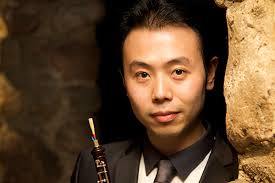What Riccardo Muti tells his youth orchestra
mainOur young Chicago friend Liam Jankelovics, 15, is co-principal double bass of the Chicago Youth Symphony Orchestra. He has recently enjoyed his first exposure to the music director of the CSO.
Here are Liam’s impressions:

My Evening With Muti
Living in Chicago provides many incredible opportunities for young musicians, and although I get to hear many inspiring artists in concert, I never would have thought that I would get to actually perform with one of them. I am 15 years old, and have been playing double bass for six years. I currently serve as a co-principal of the bass section of the Chicago Youth Symphony Orchestra, and as inspiring as that is, I had no idea that it would lead me to performing onstage with one of the greatest conductors alive today. Last week, I played in the Chicago Youth in Music Festival, a weekend festival celebrating the vast amount of young talent in the Chicago area, culminating in an open rehearsal at Symphony Center under the baton of maestro Riccardo Muti. I was overjoyed when I was first invited to participate, and especially so when I learned that we would be playing Tchaikovsky’s fourth symphony. As someone who grew up going to concerts at Symphony Center, listening to the CSO, and marveling at the genius of maestro Muti, it was truly an honor to stand in the spot where many other masterful musicians have stood before me and to learn from Muti’s wisdom firsthand.

Maestro Muti is the personification of over 50 years of wisdom about conducting and playing music. However, he delivers his thoughts in such a charming and engaging way that we, as well as the audience, were immediately won over. At one point, he humbly told us that if we were to listen to each other more, we wouldn’t need a conductor. Sure enough, he told us to play the passage without him making even one gesture, and, forced to rely upon one another, we sounded much more coherent and together that way. This proved his point that conductors need to do as little as possible and not draw all the attention to themselves. “I am Neapolitan, if i want to make the clown i can do it better than anyone”, he said, talking about how flamboyant some conductors are. He of course had a lot to say about specific musical articulation, like how “staccato does not mean it’s Rossini”, and especially in this symphony we should not play too short and clipped. He also exhorted the string players to vibrate before playing the actual note or else it would be too late, and that the second movement (written “in modo di canzona”) should be played like “a peasant collecting tomatoes”, because “To make music in the simplest way is the most difficult thing”.
One can also see his opera heritage in everything that he does. He kept telling us how every instrument needs to be singing, even the timpani. As the timpanist accompanied the strings, Muti said “the violins are the spaghetti, the timpani is the sauce.” This, everyone onstage had no problem understanding. Maestro Muti specified, quoting Toscanini, that the short notes in particular need to be sung, because “they need our help”. He wanted the lines to be long and always have a direction, just like in an opera on stage. My favorite part of the rehearsal was when the Maestro Muti turned to the bass section and told us something totally unexpected: He said “The double bass is the most important instrument in the orchestra, every note should be full of life, even if it is repeated 300 times. It’s the foundation of the orchestra. If the basses lift the notes, the rest of the orchestra will breathe. You have a whole house in your hands!” As a young bassist, it was extremely inspiring to hear this from such a prominent and wise conductor like Maestro Muti.
This was a transformative experience, and surely one that I will remember and cherish for a very long time.





Wonderful account – and what an antidote to cynicism!
1) “should be played like “a peasant collecting tomatoes”, because “To make music in the simplest way is the most difficult thing”.”
especially since picking tomatoes is back-breaking work that no one is willing to do after Trump deports all of the Midwest’s farming labor force.
2) “the violins are the spaghetti, the timpani is the sauce.”
the timpani is the parmesan, you don’t need it, but it’s a lot better with it, too much and you cover everything
I beg to differ with you concerning the timpani. As a very famous composer once said to me, “Every piece is a timpani concerto.” And, as I might add, play LOTS and play LOUD(ly).
Liam, well written, bravo. Thank you for sharing Maestro Muti’s comments….
Very perceptive insight. I didn’t know as much. When I was your age. Keep it up
Grandpa bill
Fascinating! Thank you for providing insight to a previously unknown world (to me).
I loved reading this and good luck to you in your career. Muti is a champion!
I’ve always admired Muti as a conductor. The fact that he spends time working with students is wonderful. There aren’t enough conductors in the music business that do that. Muti understands the importance of sharing music, life experience, and intellect with young people. For that I admire him as a person as well.